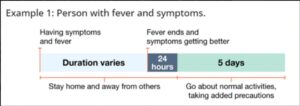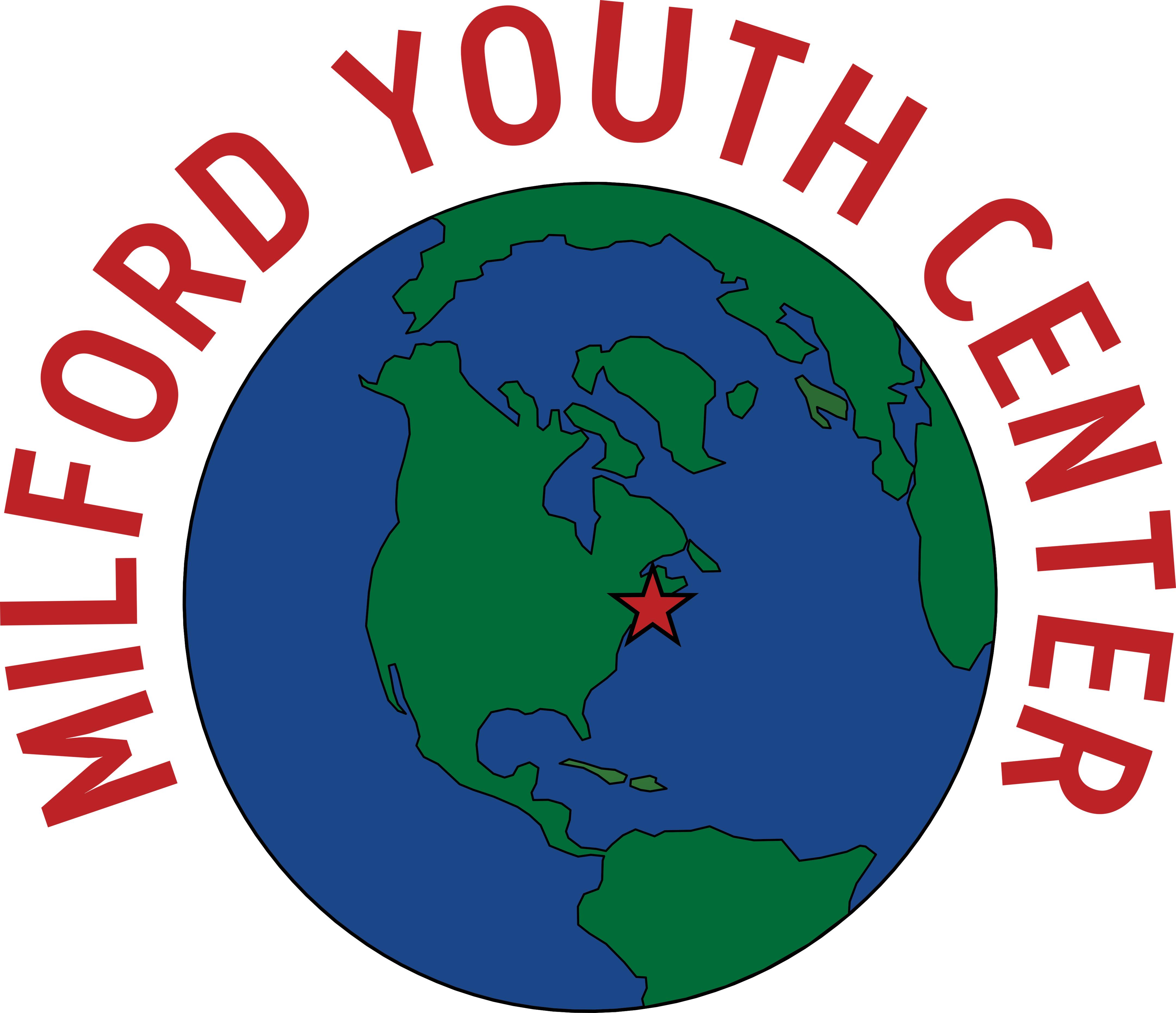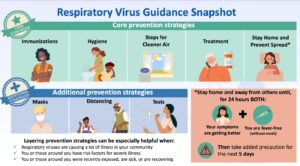MYC HEALTH POLICY: In order to provide a safe and healthy environment for our children to grow and play, we ask that parents/guardians work with us by adhering to our health guidelines.
Guidelines for Keeping Home a Sick Participant:
In order to protect the health of your child and other members and staff, children who are ill should remain at home. To determine when to allow a child back to our program after an illness, please follow these Department of Public Health guidelines:
- A child should be fever-free for 24 hours. A child’s temperature is lowest in the morning, so a low temperature on awakening is not a true indicator. If you have given your child Tylenol or Motrin at night, the medication could still be affecting your child’s temperature. A child should be fever-free without the assistance of medication for 24 hours before returning to MYC programming.
- A child should be free of vomiting/diarrhea for 24 hours before returning to camp. A child who has been ill during the night may feel slightly better in the morning and even ask to go to camp. However, the child will likely experience symptoms of illness later, will also be tired from loss of sleep, and will still be contagious to other children.
- A child with thick or constant nasal discharge should remain home. Very few younger children can effectively blow their noses and wash their hands afterwards. A child with the above symptoms will quickly spread the illness to other children.
- A child diagnosed with strep throat/scarlet fever should remain home for the first 24 hours of antibiotic treatment. A child remains contagious until he/she has been on antibiotics for 24 hours.
- A child diagnosed with conjunctivitis may attend camp after 24 hours of treatment. There should also be no drainage from the eyes.
- The 24-Hour Rule:
- A child should stay home for at least 24 hours to rest if the following symptoms are present the morning of camp or the previous night:
-
- Vomiting and/or diarrhea
- Fever >100 degrees
- Itchy or reddened eyes with drainage
- An unusual rash
- A poor night’s sleep due to illness, cough, etc.
-
- A child should stay home for at least 24 hours to rest if the following symptoms are present the morning of camp or the previous night:
First Aid, Illness and Injuries:
- Assessment and treatment are provided for minor injuries or illnesses during the day.
- If a member becomes ill or is seriously injured, his/her parent or guardian is notified immediately.
- If a parent cannot be reached in an emergency, the student will be transported to the appropriate medical facility.
- Additional guidelines for Summer Camp:
- All children must be immunized according to the requirements of the Massachusetts Department of Public Health and have an updated physical exam including immunizations signed by a physician before attending summer camp (not necessary for after school program).
- The Health Care supervisors and/or nurse consultant will dismiss any child who is too ill to be in camp, requires further assessment or treatment for an illness or injury, or is considered to be contagious or susceptible to disease.
- If your child has an injury that limits his/her activity, please inform the camp director and camp health care consultant and/or supervisor.
- Send in a physician’s note when it is safe for your child to resume normal activity.
Summer Camp Medication Administration:
The following is an overview of the medication policies that are in place to ensure the health and safety of campers that may need to take medications at camp. These forms must be on file with the Health Care Consultant and in the MYC Administrative office before medication can be administered at camp:
- Signed Medication Order – A written order from a licensed provider is required for prescription and over-the-counter medications.
- Signed Medication Authorization – Authorization must be completed and signed by parent/guardian for all medications.
- Medication Plan – Plan to meet with the camp Health Care Consultant and/or Health Care Supervisor when you drop off medication for the first time to complete paperwork and ask questions.
Summer Camp General Information:
- Medication is to be delivered to the camp health care consultant and/or supervisor by parent.
- Medication must be in a pharmacy or manufacturer’s labeled container.
- Self-medication is prohibited. This policy will be strictly enforced.
- Please note that medication will be destroyed if it is not picked up at the close of camp.
Respiratory Virus Guidelines
On March 25, 2024 we were informed that Massachusetts Department of Public Health recently updated their guidance:
Staying home to prevent the spread of respiratory viruses | Mass.gov
This guidance aligns with recent CDC updated recommendations for respiratory viruses, including COVID-19 which were released on March 1, 2024
This guidance is for respiratory viruses like Influenza, RSV, and Covid-19 as they share similar transmission methods, symptoms, and prevention strategies. This unified approach aims to simplify recommendation and address common risks more effectively.
The new CDC guidance for respiratory virus:
- When you have ANY respiratory virus– stay home and away from others if you have respiratory virus symptoms. These symptoms can include fever, chills, fatigue, cough, runny nose, and headache, among others.
- Return to normal activities when, for at least 24 hours, both are true:

-
- Your symptoms are getting better overall, and
- You have not had a fever (and are not using fever-reducing medication)
- When you go back to your normal activities, take added precaution over the next 5 days, such as taking additional steps for cleaner, air, hygiene, masks, physical, distancing, and/or testing when you will be around other people indoors.
- Keep in mind that you may still be able to spread the virus that made you sick, even if you are feeling better. You are likely to be less contagious at this time, depending on factors like how long you were sick or how sick you were.
HOW HAS ISOLATION GUIDANCE CHANGED?
The updated Respiratory Virus Guidance recommends that people stay home and away from others until at least 24 hours after both their symptoms are getting better overall, and they have not had a fever (and are not using fever-reducing medication). Note that depending on the length of symptoms, this period could be shorter, the same, or longer than the previous guidance for COVID-19.
It is important to note that the guidance doesn’t end with staying home and away from others when sick. The guidance encourages added precaution over the next five days after time at home, away from others, is over. Since some people remain contagious beyond the “stay-at-home” period, a period of added precaution using prevention strategies, such as taking more steps for cleaner air, enhancing hygiene practices, wearing a well-fitting mask, keeping a distance from others, and/or getting tested for respiratory viruses can lower the chance of spreading respiratory viruses to others.
We considered multiple options for adjusting isolation guidance at different lengths of time. In addition to fewer people getting seriously ill from COVID-19 and having better tools to fight serious illness, CDC considered other factors such as the personal and societal costs of extended isolation as well as the timing of when people are most likely to spread the virus (a few days before and after symptoms appear). The updated guidance is easy-to-understand, practical, and evidence-based, as well as more aligned with long-standing recommendations for other respiratory illnesses.
In addition to CDC’s Respiratory Virus Guidance, there are several special considerations for people with certain risk factors for severe illness, including older adults, young children, people with weakened immune systems, people with disabilities, and pregnant people.
To read the complete report, click here. Also, the CDC has created an information FAQ page for the new respiratory guidance, available here

